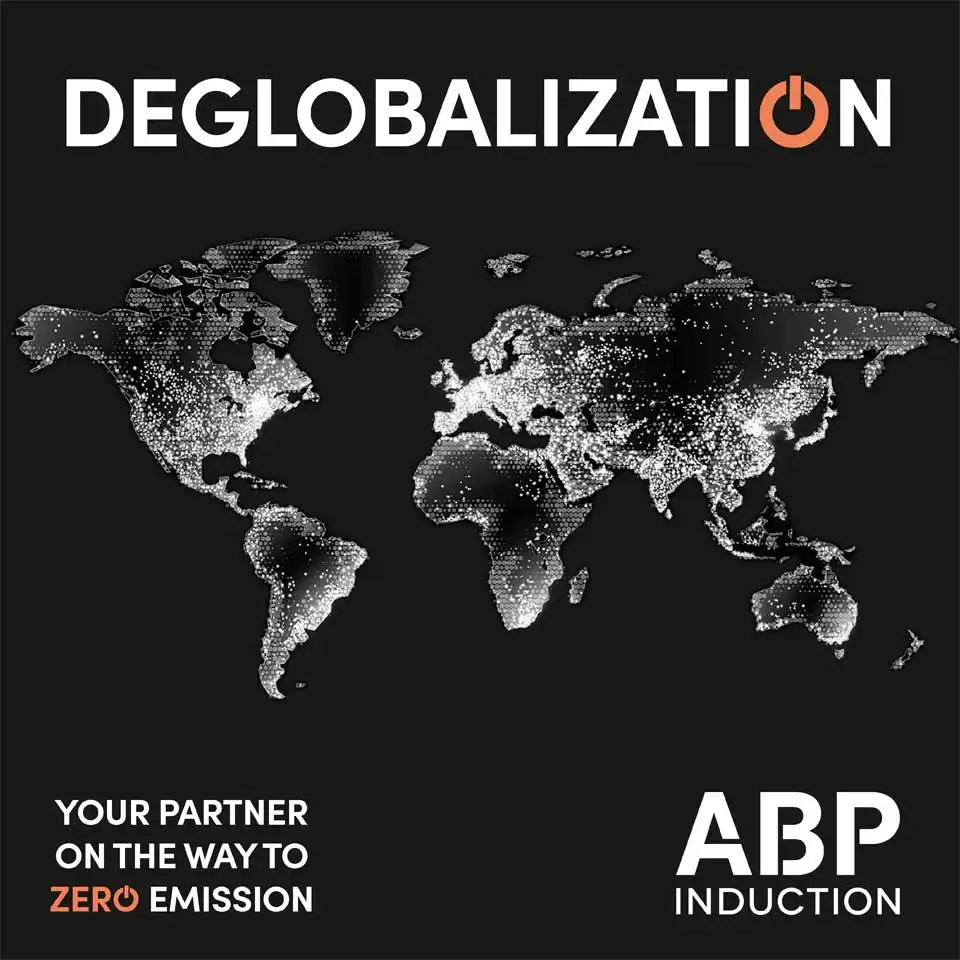Deglobalization
New strategies for production, service and support
The challenges of the Corona pandemic with all its restrictions, but also the at times profound changes in the world market are obvious. There are growing signs of increasing decoupling, i.e. of the world economy falling apart into economic blocs. The Institute for the German Economy warns that in the medium term, an economic model focused on exports is in danger of coming under even more pressure from protectionism and decoupling tendencies. This is because it creates major incentives for companies to increasingly serve export markets through local production. Added to this is the increasing competitive pressure from emerging economic powers, whether through technological catch-up or government subsidies.

Securing supply chains and domestic production will play a greater role in the future. The options open to companies include setting up separate research and production capacities for each economic region (nearshoring), relocating business units to other economic regions or focusing production, supply or sales on the European home market (regionalization). An important contribution can be made by a much more active industrial policy, for example to maintain or build up strategic production in economic areas such as the EU. It is also likely to play an important role in the development of technologies in the socio-ecological transformation. It involves infrastructure provision, strategic public procurement and regulation, state participation in risky large-scale investments, and intervention in foreign takeovers of key companies. The state development of the steel industry in South Korea or Silicon Valley in the USA are examples from the past.
Reduced to daily production practice, it can be said: service and support availability around the clock according to the follow-the-sun principle is now mandatory for internationally active companies. Maintenance and servicing are one thing, but the safe commissioning and start-up of systems and plants is another. Site security verification is a key measure that ABP provides via its remote digital solutions. The central tool is augmented reality: This allows ABP experts to see what the customer sees. The customer uses AR glasses, a tablet or simply a smartphone. Service technicians from ABP can digitally accompany or guide processes with their expert knowledge. Customers are supported by an ABP expert during all processes and can benefit from ABP's know-how.
Book a meeting with your ABP expert at the trade fair now by mail
Support is possible for activities that previously required time-consuming preparations, from the selection of technicians to the journey to the site. This can be done digitally with the ABP solutions, be it the visual inspection of the crucible for washouts and cracks, for example, the test of the emergency stop circuit with all confirmation switches, or even the verification of the ground fault measurements. And the ABP technician will then help identify the correct replacement part. The ABP expert can support employees in making simple adjustments that can already solve the problem. What's more, ABP service is available extremely quickly, as long waits for a service appointment or technician availability are not an issue – extremely important in the current climate where plants need to get back up and running quickly. ABP brings more intelligence to kiln plants – for maximum productivity, maximum availability and optimum quality for customers. Simple but reliable machines and systems such as the ABP Ecoline also allow companies from developing markets to rely on ABP Induction's proven technology.


